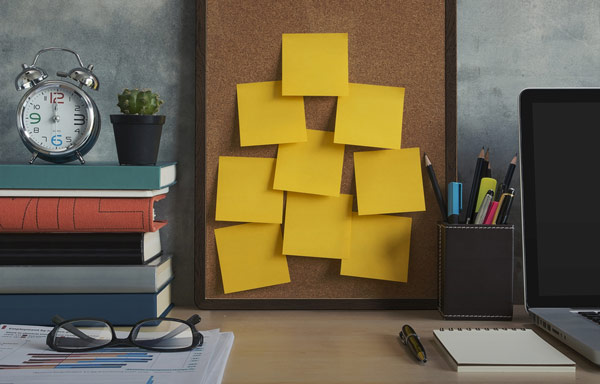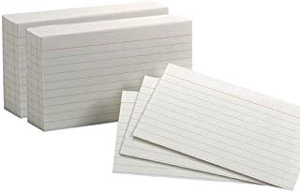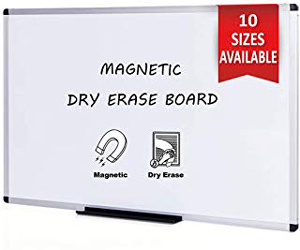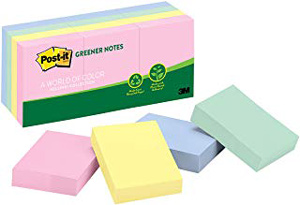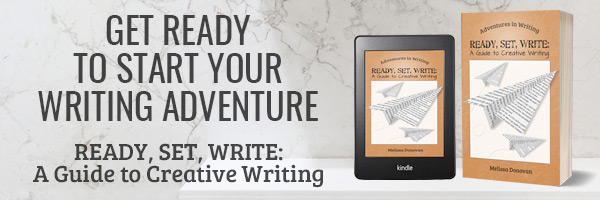Today’s post is an excerpt from my book Ready, Set, Write: A Guide to Creative Writing, which takes you on a tour through the world of creative writing, from the various types of writing that you can explore to practical tips for producing the best writing possible. This is from a chapter titled “Tools for Getting Creative.” If you’ve ever struggled to get inspired or keep track of your ideas, I hope you’ll find this helpful.
Creativity Tools
I’ve yet to meet a writer who doesn’t have an affinity for stationery and office supplies. We seem to be drawn to paper clips and pencil boxes, binders and sticky notes. If you write a short story and print it out, you’ll need to use a paper clip or stapler to keep the pages together. And if it’s a full-length manuscript, you’ll need binder clips or perhaps binder rings to hold the pages. If you write with a pen, correction fluid is often useful. But which tools can actually be used in conjunction with creativity? And how can these tools boost or bust our creativity?
There are many ways to capture and organize your ideas in writing. If you have a good idea, you should write it down so you don’t forget about it. But all those ideas can pile up. You might find yourself searching through notes, trying to find an idea you had months ago, which you want to use now. You might kick yourself for failing to write down the details of an idea that you’ve now forgotten.
Fortunately, there are plenty of tools for exploring and capturing your creative ideas. All you have to do is find the tools that work for you and develop a system that you can comfortably use for generating and organizing your writing ideas.
Getting Creative
Creativity often begins with brainstorming and sketching ideas until they’re refined enough for a draft. You can brainstorm on paper or on a computer, but I’ve found a bunch of other tools that make brainstorming and project planning fun and smooth. Here are some of my favorites:
Index cards: Simple and practical for capturing ideas randomly or during a brainstorming session, index cards are compact and easy to carry around. They also allow you to spread out your ideas and view them all at once. You can rearrange the cards, group them in stacks, or shuffle them around. Index cards are ideal for summarizing scenes and chapters and putting them in chronological or logical order. Coupled with some highlighters or colored pens, index cards are one of my favorite tools for the early stages of planning a book-length project.
Magnetic white board: This is another of my favorite creativity tools. A magnetic white board is incredibly flexible. You can display and organize ideas that are written on paper and attach them to the board with magnets and then use colored dry-erase markers (aff link) to make notes or draw connections between ideas. I often use my white board and index cards for brainstorming, and I just snap a photo of it when I’m ready to erase it.
Sticky notes: I prefer index cards to sticky notes because I can stack and store them, but sticky notes work well with brainstorming, mind mapping, and capturing random ideas, which you can stick to your desk, wall, or bulletin board for later use. They’re perfect for jotting down quick notes or ideas that you want to attach to a page in a notebook or a scene summarized on an index card. I often use small sticky notes, flipped upside down, as bookmarks in my notebooks (or in paperbacks). This allows me to include a quick note on the sticky note, reminding me why I’ve marked that page.
Audio recordings and dictation: Several times, I’ve found myself full of great ideas while driving. I used to call myself and leave a voice mail, but now I use an audio recording app that came with my smartphone. Your computer and smartphone probably have recording capabilities built right in, and most computers also take dictation, using automation to transcribe your spoken words into text.
Stocking Up on Supplies
I like to get my supplies in various colors. With colored dry-erase pens, index cards, and sticky notes, you can color-code your project. You might want to use different colors for different locations, or you might want to assign each character their own color.
Some of these items can be costly, such as a massive magnetic white board. And while the rest are fairly affordable, the price tags add up if you try to get them all at once. If you’re on a budget, you can get an item or two whenever you can spare the cash. But don’t put off your writing because you’re waiting to get your hands on some sticky notes or dry-erase pens. Make do with what you have until you can get the rest. The most important thing is that you get your writing done.
What Are Your Favorite Creativity Tools for Writers?
Have you found any tools that boost or hinder your creativity? Which tools have you used or would want to try for generating ideas and brainstorming? How would they suit your needs?

